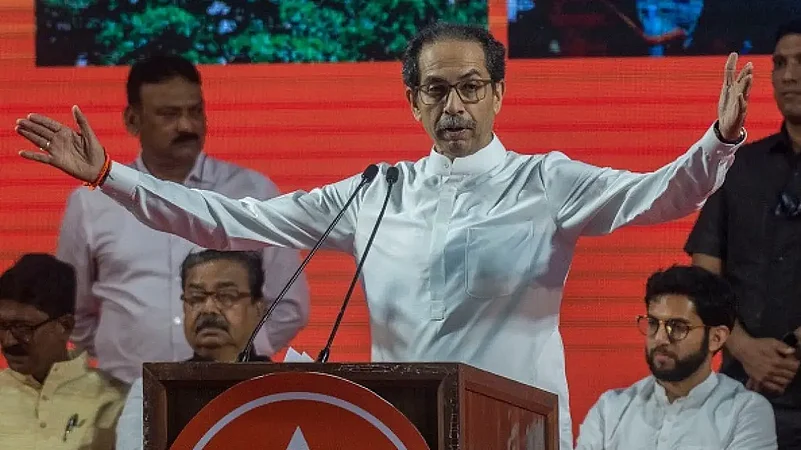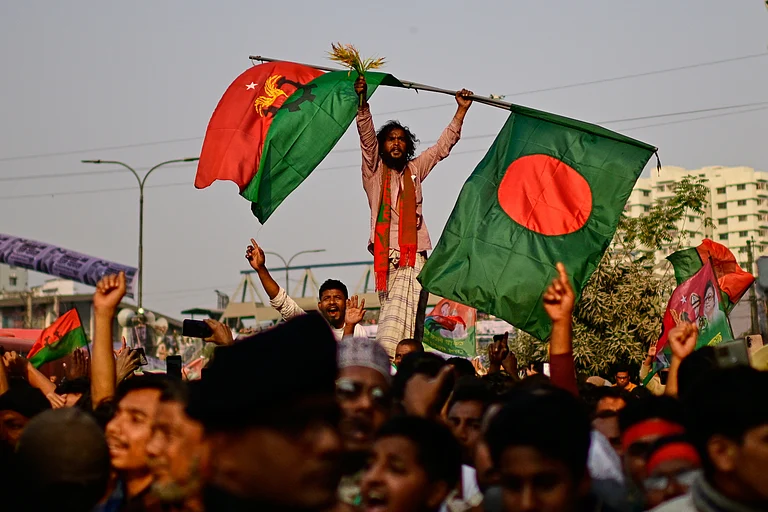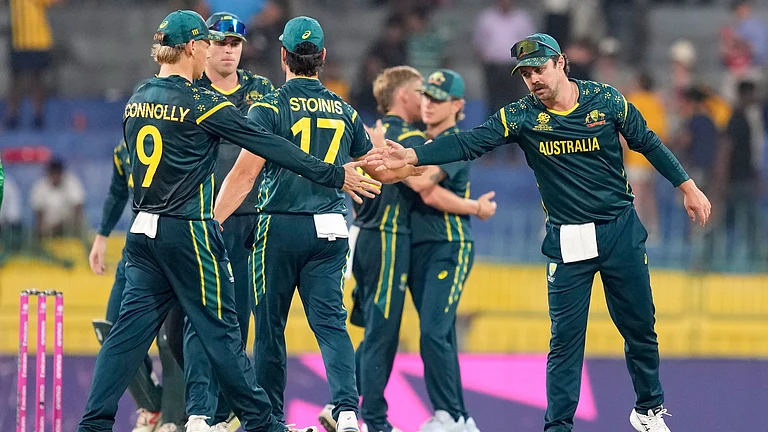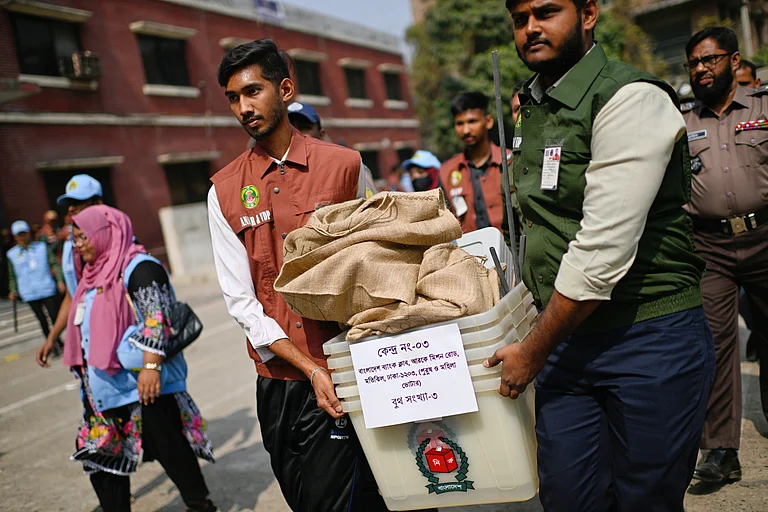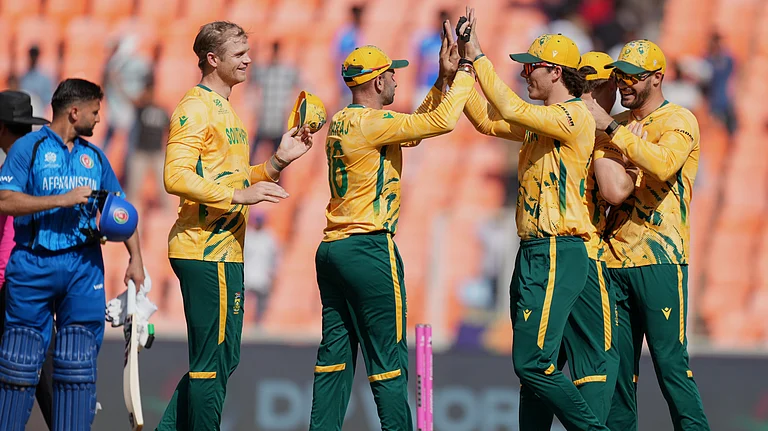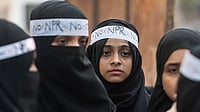Former Maharashtra Chief Minister and Shiv Sena chief Uddhav Thackeray is all smiles. Those who stand by him after he has been boxed into a corner by rebellion in the Shiv Sena, too cannot contain their excitement. Everyone in the faction led by him are preparing to make this year’s Dussehra melawa (rally) of the party a mega success. The order of the Bombay High Court granting permission to the Thackeray led faction to hold the annual Dussehra rally at the iconic Shivaji Park, in Dadar, Central Mumbai, is the trigger for their happiness.
This order of the Bombay High Court is a victory of sorts against the party faction led by rebel Eknath Shinde, who is the current chief minister after aligning with the BJP. Though it is the Thackeray group which had petitioned the court first for permission to hold the Dussehra rally at the Shivaji Park ground on October 5, it was followed by an intervention application by the Shinde faction. Earlier both factions had applied to the Brihanmumbai Municipal Corporation (BMC) for permission to hold the rally at the said venue.
Sensing a possible law and order situation and pointing out the fact that Shivaji Park fell under the silent zone category, the BMC had rejected both applications. However, the Thackeray faction had petitioned the court before the Shinde faction.
The court order is seen as a huge moral victory for Uddhav Thackeray, who is battling an existential crisis of the 56-year-old party founded by his late father Bal Thackeray on June 19, 1966. Out of the 56 MLAs of the party, 40 have switched over to the faction led by Shinde, while 16 remain with Thackeray. The court’s order has propelled Thackeray and his brigade into action.
After the court order, Party MP in the Rajya Sabha tweeted, “One party leader, One Shiv Sena, One Shivtirtha. A single Dussehra gathering on October 5, the tiger’s roar will be heard.”
The Dussehra rally has been an important event in the Shiv Sena’s annual calendar. The first Shiv Sena rally was held in 1966 following the inception of the political party. The party was registered in 1989. Even after the Bombay High Court had held that Shivaji Park should only be used as a recreational ground where such events could not be held amidst raging controversy, the same court had granted permission to the party to hold the rally from 2015 to 2019.
The plea to the court had mentioned that it had filed an application before the BMC to hold the rally at Shivaji Park, after two years of the Covid-19 lockdown. However, the party had received no reply from the civic body.
The party faction led by chief minister Eknath Shinde had opposed Thackeray’s plea to hold the rally at Shivaji Park. Shinde-faction leader and Shiv Sena MLA, Sada Sarvankar, had filed an intervention application in the plea filed by Thackeray wanting to hold the rally at Shivaji Park on October 5.
Shivaji Park is important to the Shiv Sena not only because of the over five years association with the grounds but also because Bal Thackeray was cremated here. It is also the place where a small memorial has been erected to mark the place of his cremation. Therefore, for the Shiv Sainiks this ground has an emotional connect.
According to a chronicler of the Shiv Sena’s journey, after the formal establishment of the party on June 19, 1966, for several months there was no public rally. The party workers went to Bal Thackeray’s house to meet him and understand the course of the party. Since interacting with the party workers was not possible on a large scale, it was decided that the party will have a mega rally once a year. “The Dussehra day was chosen by Balasaheb as it was the day when good triumphs over evil,” said Pandharinath Sawant, one of the early Shiv Sainiks. “Balasaheb wanted to meet the party workers at one time, so this idea worked. Over the years through this rally on Dussehra day Balasaheb told the cadre the party’s direction for the next year,” Sawant told Outlook.
“I have never celebrated Dussehra at home,” said Rambhau Parikh, a Shiv Sainik who has spent 50 years with the Shiv Sena. “A group of us would drive down from Pune to Mumbai to attend the rally. Attending the rally was an important part of a Shiv Sainik’s life,” Parikh added. Balasaheb’s speeches were inspiring and indicated the direction the party would take, said many Sainiks.
Whether it was the party’s Hindutva line, the Shiv Sena’s stand on the Ramjanmabhoomi issue, an alliance with the BJP, terror attacks in the country or any other issue it was always addressed first at the mega rally by Bal Thackeray. He spared neither friends nor foes in his annual speeches using his famed oratory skills. There were three occasions in the 56-year-old history of the Shiv Sena that the Dussehra rally had to be cancelled. In 2006, it was canceled due to incessant rains. Both in 2009 and 2014 it had to be canceled as the code of conduct was in force due to the elections in both these years.
At the 1975 Dussehra rally, the leader had told the gathering his decision to support the Emergency enforced by the Indira Gandhi Government. In 1991, he had opposed the cricket match between India and Pakistan at the Wankhede stadium, which led the Shiv Sainiks to dig up the cricket pitch. In the 1978, when the Shiv Sena was trounced in the BMC elections, he had told those gathered at the Dussehra rally that he would quit the Shiv Sena if the people did not have faith in him and his party. This speech got him power at the BMC for the first time in 1985, said Prakash Akolkar, a chronicler of the Shiv Sena. This was the first time the party had come to power on its own, without alliances.
In 2010, after the Bombay High Court declared Shivaji Park as a silent zone, Bal Thackeray had opposed the idea tooth and nail. He criticized the order of the court. Thereafter, the High Court had allowed the Shiv Sena to hold its annual Dussehra rally at these grounds.
In 1966, after announcing the date of the first Dussehra rally, Bal Thackeray was unsure of the attendance, therefore instead of erecting the podium at a side of the park, it was erected at the centre of the park. “Balasaheb thought that there would not be many people. But the turnout was so much that it spilled on to the streets,” said Sawant. “Every year more Sainiks were added to the numbers of the previous years and it grew. Balasaheb’s power-packed speeches became the anthem for the Shiv Sainiks. Even the foreign media used to come to listen to his speeches,” said Sawant.
In 2012, when the leader was very ill and was unable to address the Dussehra rally, a virtual recorded message was relayed on to large screens at Shivaji Park. That year too, there was a huge crowd to listen to their leader’s words. It was through this recorded message that he appealed to the Shiv Sainiks to give the same respect and love to Uddhav that they had showered on him.
In the years after the death of his father, it is Uddhav Thackeray who has addressed the Dussehra rally. Employing the same tactics as his father but sans the famed oratory delivery, Uddhav too has been using the rally to spell out the next year’s work mode for the party men.
Political analysts feel that any opposition to the court order by the Shinde group will send more sympathy towards Uddhav. “The BMC elections are important to both these factions. The Shivaji Park rally will now be a show of strength for Uddhav Thackeray,” said Prakash Bal Joshi, a political analyst.






